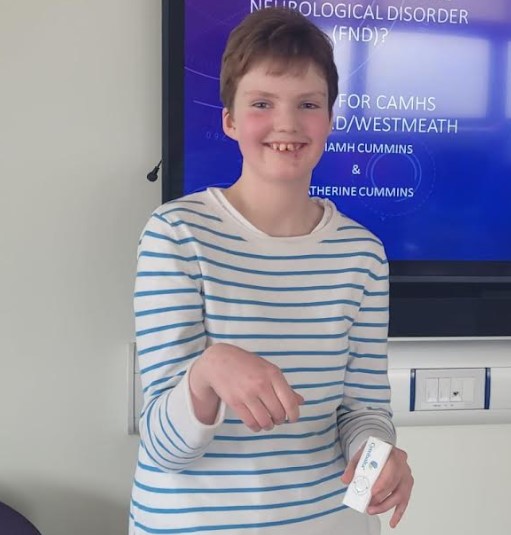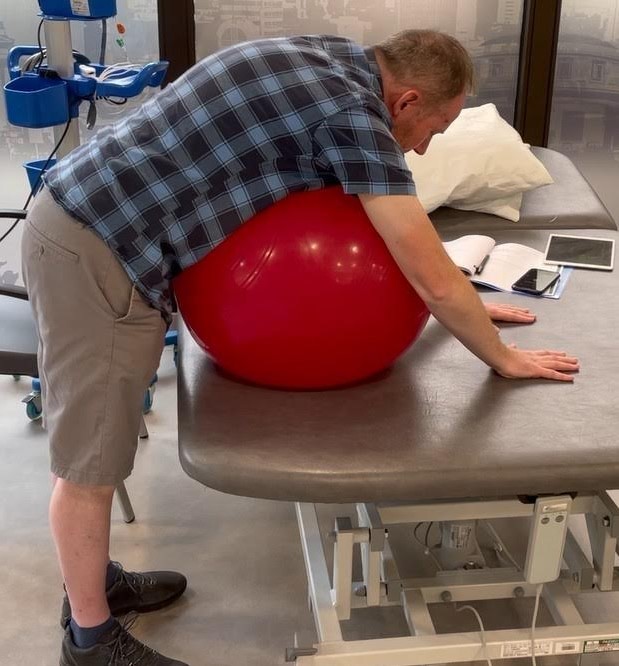What is FND?
Functional Neurological Disorder (FND) is a condition that can present with lots of different neurological symptoms and occurs due to a problem with how the brain and body send and receive signals, resulting in abnormal neurological function.
FND is a genuine and real condition which can occur alone or can coexist with other illnesses and neurological conditions.

How Common is FND?
At present, Irish data on the prevalence of Functional Neurological Disorder (FND) is lacking however we feel that extrapolating from international figures is reasonable; this means the presumptive community incidence rates are comparable to multiple sclerosis (MS).
FND is the second most common reason to see a neurologist. Anyone can be affected by FND, but it is more common in women than men. It can occur at any age, but is uncommon in children under 10 years.
Symptoms of FND
Functional Neurological Disorder (FND ) can have many neurological symptoms that can vary from person to person. Some people may have few symptoms, and some people may have many. It is important that your symptoms are diagnosedby a neurologist..
As the symptoms of FND may wax and wane or may not always be there, it is important your healthcare professional is aware of all your symptoms. Your healthcare provider may ask you to video your symptoms, to allow them to see what your symptoms look like.
FND can present with a broad range of symptoms including but not limited to:
FND is a term used to describe various neurological symptoms and these can differ from person to person.
- functional (dissociative) seizures
- functional drop attacks
- functional limb weakness and paralysis
- functional gait disorder
- functional dystonia
- functional facial spasms
- functional tremor
- functional jerks and twitches
- functional tics
- cognitive symptoms
- sensory issues
- persistent dizziness
- visual symptoms
- speech and swallowing difficulties
- bladder issues
- functional (dissociative) seizures
- functional drop attacks
- functional limb weakness and paralysis
- functional gait disorder
- functional dystonia
- functional facial spasms
- functional tremor
- functional jerks and twitches
- functional tics
- cognitive symptoms
- sensory issues
- persistent dizziness
- visual symptoms
- speech and swallowing difficulties
- bladder issues
FND can also have many common associated symptoms such as fatigue, pain, anxiety, low mood, sleep disturbance and other functional symptoms elsewhere in the body.
For more information on FND symptoms visit www.neurosymptoms.org
Also the Body Symptoms website www.bodysymptoms.org provides information about the mind-body mechanisms behind common functional symptoms. It is important to remember that while there is large overlap between functional symptoms and FND, FND is a specific type of functional disorder with some distinct differences. Our FND Ireland Awareness Ambassador Aimee Campbell’s journey with functional symptoms is featured in the stories section of the Body Symptoms website.
FND Diagnosis
FND has specific clinical features of its own on which a positive diagnosis can be made and your health professional can explain these findings to you. Your neurologist may or may not choose to carry out further tests. Neurologists are key in providing a correct diagnosis and communicating the diagnosis clearly to people.

FND Treatment
As Functional Neurological Disorder (FND) symptoms can vary from person to person, treatment will be dependent on how complex the condition is and should be tailored accordingly.
A multi disciplinary team approach including neurology, psychology,psychiatry, physiotherapy, occupational therapy and other relevant specialists is generally best suited for treating FND. Depending on the type of FND a more focused treatment may be appropriate and your health professional can discuss this with you.
For more complex cases specific inpatient or outpatient rehabilitation programs can be helpful however such programs are not currently available in Ireland. Unfortunately those living with FND in Ireland have to travel to the UK or further afield to access such FND rehabilitation programs.
Some people with FND find certain complementary therapies beneficial while others may not so it is important that you receive personal recommendations and references from qualified practitioners in this area.
FND Ireland is currently advocating for a HSE clinical pathway for FND to be put in place and we plan to work alongside the HSE using the patient partnership approach to ensure the voice of those living with FND is at the core of developing this pathway. It is unacceptable that there is no treatment pathway for FND in Ireland and this has to change, in the meantime it is crucial that health and social care professionals involved in the care of those with FND have adequate knowledge and experience of FND.
Even with access to specific multi-disciplinary FND treatment, a full recovery from FND may not be possible and many people need ongoing support to manage their symptoms and optimise their quality of life.
For more information on FND treatment visit Professor Jon Stone’s website www.neurosymptoms.org.
